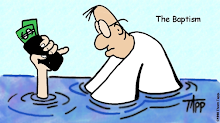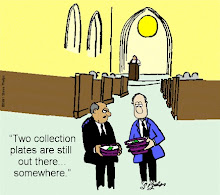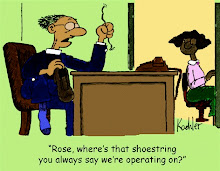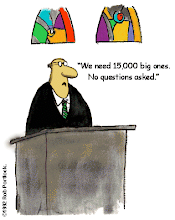Subscribe to:
Post Comments (Atom)
skip to main |
skip to sidebar





How is God speaking to you today? Share stories of encouragement, God's provision, and testimonies of how God is continuing to be faithful.
Jump In
Whether a long time tither or beginner, thanks for taking the plunge to tithe. God will provide as we honor Him. – Malachi 3:10.
Check this blog often. Post your stories hints, helpful Scripture promises, and more. You'll need to sign up for a free account, but it's just a 2 step process.
Click the "COMMENTS" tab below each of the categories listed to the left and share your thoughts. Find encouragement from the experiences of others.
With Christ, the best is yet to come – Blessings in Him! Brent Van Hook
Check this blog often. Post your stories hints, helpful Scripture promises, and more. You'll need to sign up for a free account, but it's just a 2 step process.
Click the "COMMENTS" tab below each of the categories listed to the left and share your thoughts. Find encouragement from the experiences of others.
With Christ, the best is yet to come – Blessings in Him! Brent Van Hook
About Me






5 comments:
"You Can't Out-Give God" is a phrase I hear often. However, I don't know anyone who tried this who proved it wrong. God's generosity upholds His people.
In the Bible, there are 40 verses on baptism, 275 verses on prayer, 350 verses on faith, 650 verses on love, and 2,350 verses that relate specifically to finances and material possessions. So stay encouraged! It's worth the effort to honor God with your finances.
Someone told me today that one of the benefits of their tithing is that they recognize financial turns for the good as God's blessings. The attitude of "trying to make ends meet" - an attitude that seems dependent on my efforts, is replaced with "God will provide and I will look out for His provisions to come my way."
Article from the AP:
Science, Bible Agree: Giving Is Better
WASHINGTON - The Bible counsels misers that it's better to give than to receive. Science agrees. People who made gifts to others or to charities reported they were happier than folks who didn't share, according to a report in Friday's issue of the journal Science.
While previous studies have shown that having more money can increase happiness, the researchers at the University of British Columbia and Harvard University wondered if the way people spent their money made any difference.
Turns out, it does.
Lead researcher Elizabeth W. Dunn, an assistant professor of psychology at the University of British Columbia, said she wasn't surprised that doing something for others made people happy.
But she was struck by how big the effect was and that how people spent money was more important than how much money they had.
"This work suggests that even making small alterations in how we spend money on a daily basis can make a difference in happiness," Dunn said in a telephone interview.
"That doesn't mean go get a high paying job so you can spend tons of money on others. The message is, given what you have, how can you make little alterations to do something for others," she said.
And, she added, "there's nothing special about money," giving can involve time or special skills to help other people.
The report didn't surprise Sue Citro, senior digital membership manager for the Nature Conservancy:
"We do hear from our members and our supporters that the do get a real feeling of satisfaction from knowing their giving is doing good," she said.
Andrea Koslow, director of advertising at the American Red Cross, said: "The act of helping has its own profound effect."
"People need a humanitarian outlet ... feeling that they make a difference ... that's very motivating," Koslow said.
The good feeling associated with giving is why workplace charity opportunities can engage employees and lift morale, added Kristine Templin, director of corporate partnerships at the American Red Cross.
The researchers started by asking a sample of 632 Americans, 55 percent of whom were women, to rate their happiness on a scale of 1 to 5, the higher the number the happier.
Then they asked the participants to report their annual income and estimate how much they spent on paying bills, buying gifts for themselves, buying gifts for others and giving to charity.
The first two were considered personal spending and averaged $1,714-a-month, the second two were termed "prosocial" spending and averaged $146-a-month.
"Personal spending was unrelated to happiness," said the researchers. "But higher prosocial spending was associated with significantly greater happiness," they found.
Not content with that, they then studied 16 employees of a company in Boston, asking about their happiness one month before and six to eight weeks after each received a profit-sharing bonus from their employer.
In the second interview they also asked about personal and prosocial spending and once again those who spent more on others were happier.
"The manner in which they spent that bonus was a more important predictor of their happiness than the amount of the bonus itself," the researchers found.
Finally, 46 Canadian students were asked to rate their happiness and then each was given a random envelope containing money, ranging from $5 to $20. Some were instructed to spend it on themselves, others were told to buy a gift for someone else.
At 5 p.m. that day, they were called together again and asked to rate their happiness.
The amount of money had no impact on happiness, but those assigned to buy something for another person reported greater happiness than those told to get something for themselves, the researchers said.
A separate study published in 2006 in the journal Proceedings of the National Academy of Sciences found that the same parts of the brain that produce the good feeling when a person receives a reward also respond when they give to someone else.
Indeed, researchers led by Jordan Grafman at the National Institutes of Health found the reward areas were more active when giving a gift than when receiving one.
Associated Press Writer Natasha Metzler contributed to this report.
Science: http://www.sciencemag.org
A service of the Associated Press(AP
Post a Comment